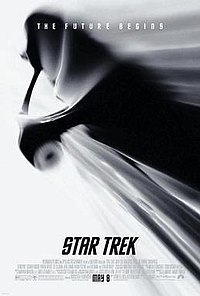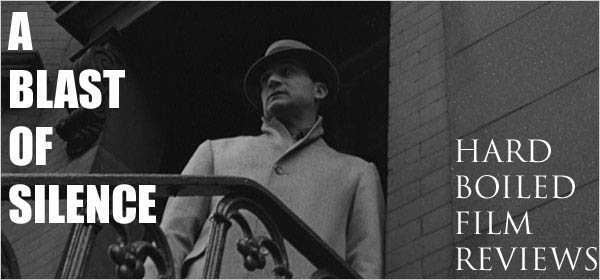
Very few television or film series in history of the two mediums are as delicate to touch as the Star Trek series is. The fanbase is enormous and serious, a mass of dedicated people that might not be the easiest to please, especially when the project created by J.J. Abrams, the man behind the television show Lost, is a pre-summer blockbuster that is very mainstream friendly. Not to mention that the new vision is a flashy prequel that serves as an eventual reboot to the legendary series.
This is why Abrams is very fortunate that he knows what he’s doing. We’ve seen big budget reboots before, perhaps even far too often. And even though those reboots include insanely popular and well-respected material such as the Batman canon, whether any of it has been as sacred as the Star Trek series is up for serious debate.
This effort from Abrams is no cheap attempt at becoming the next Michael Bay. Star Trek is pure visionary work that should keep Abrams’ head on his shoulders and safe from the rabid fanboys and girls of the series. That is the problem here though, my view as an outsider of the series (this film counts as the first Star Trek-related item I have viewed in full) might not be entirely compliant with that of a diehard fan.
Abrams’ Star Trek gives a chronicle of the early days of James T. Kirk and the rest of the crew aboard the USS Enterprise as they battle Nero, a member of the Romulan species from the future, who threatens the destruction of planets. Abrams and writers Roberto Orci and Alex Kurtzman created a story that seems to stay true to the ideologies of the original Gene Roddenberry-created series while morphing it all into a more modern and fast-paced action film.
As much credit is due to Orci and Kurtzman as is due to Abrams. The script at hand doesn’t forget its brain as most “blockbuster” films might tend to do. What’s left is a rather intelligent variance of the space opera and science fiction action genres. The film appropriately moves at the speed of light, but doesn’t move too fast that it bypasses the necessary light philosophical ponderous moments that help develop the characters the way Orci and Kurtzman are able to.
The development of the characters comes as a key element of the story’s progression. For example, James T. Kirk, who is wonderfully played by Chris Pine, is first presented as the young, cocky womanizer he is, which is all prior to Kirk becoming more serious about the issues at hand. While none of this development is emotionally challenging or deep, it still makes the film work that much more. Instead of it simply being a war set in space, the events are given more relevance with the exceptionally handled characters being worth a damn.
As I mentioned earlier, I didn’t have experience with these characters prior to viewing this film. For me that means I can’t give a full admission to whether these characters stayed exactly true to the Roddenberry characters. But with Abrams being a casual fan and Orci and co-producer Damon Lindelof being self-proclaimed “Trekkies”, I would put money on the fact that they stay faithful to the series and representational of the characters fans fell in love with years ago.
Abrams and his team assembled a near-perfect group of actors and actresses to fill the tight shirts and pointed ears of the past’s cast. The cast includes the likes of Zachary Quinto (Spock), Karl Urban (Dr. McCoy), Zoe Saldana (Uhura) and John Cho (Sulu). All were more than decent in what was surprisingly a well-acted film. Eric Bana plays chief villain Nero, a downright evil and vicious character, and Bana plays it as such with the perfect sneer. Special mention awarded to personal favorite Simon Pegg, who stayed as funny as you would expect him to be in his role as Scotty, a character that adds comic relief when stress level rises amongst the rest of the crew battling Nero.
Commentary on this revamped film would not be complete without talking about the lavish visuals and sheer size of the film. Abrams’ film is a science fiction epic worthy of high honor for its large-scale explosive battles, stunning sets and bright, colorful photography. The film actually gleams to the eye so much some have mentioned Abrams overuse of lens flare simply from watching the trailer. It was something I noticed but wasn’t bothered by at the slightest. I actually found it to be more of a unique visual style than anything else.
It’s no secret that there has been a lack of real quality science fiction films set in space as of late. While the variants of the science fiction genre have been out there, not much compares to the wonder of a good space voyage beyond frontiers man does not know of. Abrams production of Star Trek is just that. The film ends as an incredibly enjoyable and well-told story of awe-inspiring action.
With the recent Star Wars films not coming in as the science fiction masterpieces many wanted them to be, fans of space operas can sit in relief. Abrams has created what will probably be just the start of something much larger. It’s completely fair to call Star Trek one of the best and most enjoyable films of the year thus far, a standard for all future prequels and a step forward for a genre that needed the boost this film gives it.
If for some reason you come across J.J. Abrams and you see him petting that ego just a little bit more than normal, you’ll know why. Star Trek is a fascinating adventure, and a classic one for all generations to behold.




No comments:
Post a Comment